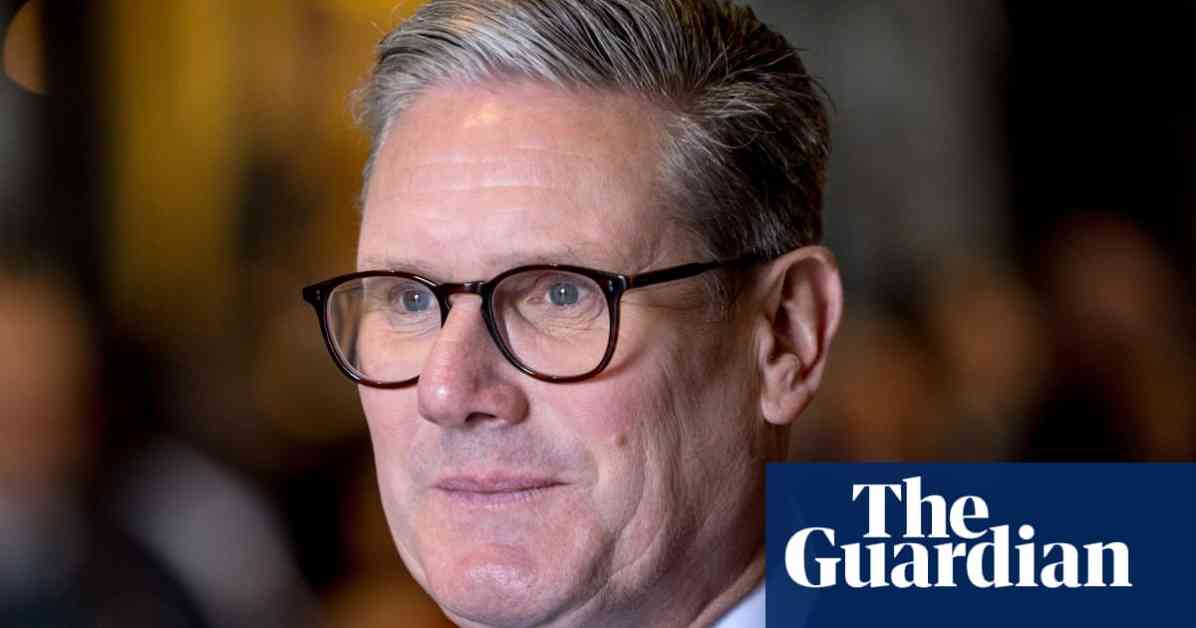UK Labour Leader Faces Pressure to Distance from Italy’s Hard-Right Immigration Policies
Keir Starmer, the leader of the UK Labour Party, is facing mounting pressure from within his party and various NGOs to distance himself from Italy’s hard-right immigration policies ahead of bilateral talks with Italian officials in Rome. The focus of these talks is on Italy’s approach to reducing irregular migration and processing asylum seekers in third countries like Albania.
The UK’s foreign secretary, David Lammy, recently expressed interest in potentially adopting Italy’s strategy of processing asylum applicants in a third country, such as Albania. This statement raised concerns among Labour backbenchers, with one questioning why a Labour government would consider emulating policies from what they described as a “neo-fascist government.”
The Refugee Council and Amnesty International have urged Starmer to refrain from pursuing further “gimmicks” in addressing immigration issues, citing the failure of previous government initiatives such as the Rwanda scheme. These calls come in the wake of a tragic incident where eight men lost their lives while attempting to cross the Channel, highlighting the urgency of finding effective and humane solutions to the ongoing migration crisis.
Concerns Over Italy’s Approach to Immigration
Italy’s Prime Minister, Giorgia Meloni, has garnered attention for her government’s tough stance on immigration, which has resulted in a significant reduction in the number of arrivals via the Mediterranean route. Meloni’s administration has prioritized financial agreements with North African countries like Tunisia and Libya to strengthen border security and prevent the departure of migrant boats.
In a further step, Italy plans to establish a holding center in Albania, where asylum seekers rescued at sea by Italian ships will be processed. However, concerns have been raised about the human rights implications of this approach, with critics labeling it a “model of mismanagement and a blueprint for abuse.”
Labour MP Kim Johnson criticized Starmer’s engagement with Meloni’s government, highlighting the alleged shortcomings in Italy’s handling of Albanian migration and cautioning against aligning with a regime accused of dehumanizing refugees and migrants. These sentiments were echoed by another Labour MP, who described the prospect of cozying up to Meloni as “shameful” and contrary to the values of the party.
Government Response and International Cooperation
Despite the controversy surrounding Italy’s immigration policies, UK officials have expressed interest in learning from Italy’s experiences in curbing irregular migration. Foreign Secretary David Lammy emphasized the importance of discussing Italy’s schemes with Albania and exploring potential collaborations to address common challenges in managing migration flows.
However, there appears to be some confusion within the UK government regarding the specifics of potential partnerships with third countries like Albania. A Home Office source clarified that sending asylum seekers to Albania is not current government policy and pointed out that Italy’s initiatives have not yet been fully implemented.
As the UK grapples with the issue of small boat crossings and the tragic loss of lives in the Channel, the government has appointed Martin Hewitt to lead the newly established Border Security Command. This initiative aims to coordinate efforts to prevent dangerous crossings and combat human trafficking networks operating along the northern French coast.
Human Rights Concerns and Ethical Considerations
Amnesty International and the Refugee Council have raised alarm about the implications of offloading responsibilities onto other countries and outsourcing asylum processing. They argue that such approaches can be costly and expose vulnerable individuals to risks of violence, exploitation, and deprivation of their rights.
Critics caution against replicating schemes that have failed to uphold international legal standards and human rights obligations. Instead, they advocate for a more compassionate and effective asylum system that prioritizes fair treatment, timely processing of claims, and support for vulnerable individuals seeking refuge.
In light of the ongoing migration crisis and the challenges posed by irregular migration routes, there is a growing recognition of the need for coordinated international efforts to address root causes, combat human trafficking, and ensure the protection of migrants’ rights. The UK and Italy’s engagement on these issues reflects a broader trend towards seeking collaborative solutions to complex migration challenges.
In conclusion, the pressure on Keir Starmer to distance from Italy’s hard-right immigration policies underscores the complexities and ethical considerations involved in managing migration flows and protecting the rights of asylum seekers. As the UK navigates its response to the migration crisis, it is essential to prioritize human rights, international cooperation, and a compassionate approach to addressing the needs of refugees and migrants.












